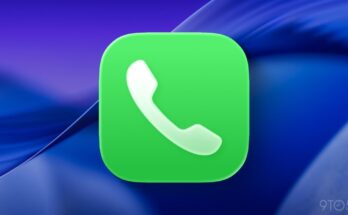Amber Nance learned of the crushing financial cost of keeping in contact with someone in prison after her husband was sentenced to serve seven years in North Carolina for a crime that she maintains he didn’t commit. “Right now I spend over $300 a month on the phone and video visits,” Nance told me in a recent call, estimating she’s spent around $20,000 total on calls from prison during the six years her husband has been inside—all so that he could continue fathering their three children while he served out his sentence. “I could have spent that on a down payment for a house,” she said.
The exorbitant price that Nance and millions of others pay to talk with family in prison has become a key organizing issue for advocates for incarcerated people, who have ramped up reform efforts in recent years to reduce or even eliminate fees that families pay to prison telecom companies. Activists have pushed several states and large counties to make phone calls free for incarcerated people, and in late 2022 Congress passed the Martha Wright-Reed Fair and Just Communications Act, which clarified the Federal Communications Commission’s statutory power to regulate in-state prison calls.
Last summer, the newly-empowered FCC voted to cap prison phone calls at 6 cents per minute and limit video call charges to 16 cents per minute. Starting this year, those new limits were set to kick in and lower costs across prison and jail systems in states that have resisted reforms, including North Carolina.
However, on June 30, Brendan Carr, who was tapped by President Donald Trump to chair the FCC, blocked those new rules from being enforced, issuing a two-year waiver for prison telecom providers to comply with the new caps and said the commission would “assess potential changes” to the new regulations. In a statement, Carr said the new limits—which started being enforced on a staggered basis across the country starting in January, and had been set to take effect in North Carolina the day after his announcement—were “leading to negative, unintended consequences,” such as some institutions planning to scale back phone services in reaction to the new caps on rates that can be charged.
FCC Commissioner Anna M. Gomez, who was appointed under President Joe Biden, issued a statement accusing Carr of stalling and ignoring both the law and the will of Congress in order to shield “a broken system that inflates costs and rewards kickbacks to correctional facilities.”
As a result of the FCC blocking the new rules, the rate that I and others who are incarcerated in North Carolina have to pay for phone calls will remain 10 cents per minute, rather than dropping to what was supposed to be the new federal limit of 6 cents per minute this summer.
These costs for communicating add up, and will continue to mostly fall on family and friends of incarcerated people. My job as a janitor inside Neuse Correctional Facility, a medium-custody prison in Goldsboro, earns me only about $7 a week. Since I can’t afford much on my own, the costs of keeping in touch often get passed on to loved ones like my mother, who has paid varying rates to talk with me over the course of my 23 years in prison. At one point, she has shelled out as much as $15 for a single 15-minute phone call.
Communication with the outside is vital for us. When the pressures of incarceration become too difficult to cope with on my own, my support system is only a phone call away. I’m fortunate that, even with the high cost of phone calls, my loved ones send money to help keep us in regular contact. My sentence of life without parole, coupled with the far distance it takes to travel to the prison and other restrictions on visitation here, means I will likely never physically spend time with many of my family and friends ever again. But through these phone calls, I can still rely on their emotional support and encouragement, even if they are just a voice hundreds of miles away. Without them, I would be lost.
Twenty-nine year old William Kohler isn’t so lucky. Kohler, who works as a janitor with me here at Neuse, told me he’s lost most of his family contacts since being sent to prison a decade ago, and says he gets no money from the outside to help with calls. To talk with his 12-year-old daughter, he relies on the free five-minute phone call that ViaPath, the telecom company that contracts with North Carolina’s prison system (formerly Global Tel Link, or GTL), has provided to all incarcerated people once a week. On weeks that Kohler needs to call a cousin or friend to deal with other matters, he has to skip the call with his daughter—meaning that sometimes they can’t speak at all for two or three weeks.
“Sometimes she’ll ask if I can call back,” Kohler told me as we spoke in a raucous day room at Neuse. “I ain’t got the money to afford it, but I feel like she thinks I don’t care about her when I don’t call back. Believe me, I wish I could call back to hear about her day or give her advice about life—you know, all the things a father should do. But I can’t.”
Kohler says he couldn’t afford more calls with family even if ViaPath lowered the rate to the cap of 6 cents per minute that the FCC set last summer. Paying for more calls, he says, would mean sacrificing hygiene or food items he needs to survive in prison.
A wave of activism by people directly impacted by the high price of communicating with loved ones behind bars—many of them mothers, children, and spouses of incarcerated people—has reduced costs for incarcerated families across the country in recent years while putting a harsher spotlight on the companies that reap massive profits off prison communications. Activists have so far pushed five states to make all prison phone calls free: Connecticut, California, Colorado, Minnesota, and Massachusetts. Several large U.S. cities also now provide free calls for people incarcerated inside local jails.
In North Carolina, a group of women with incarcerated loved ones last year formed a coalition called Connecting Families NC to lobby lawmakers for free phone calls in the state’s prisons.
Kristen Powers, one of the coalition members, is also the executive director of Benevolence Farm, a reentry nonprofit that provides housing and employment opportunities for women leaving prison in the state. Powers told me she’s witnessed women she works with struggling to stay in contact with incarcerated loved ones after release; she also told me about her personal experience paying exorbitant prices for phone calls to talk with a friend incarcerated in an immigration detention facility before he was deported.
“People in prisons and jails need to stay in touch with the outside to maintain family bonds,” Powers said. “The more people you have on your team when you get out, the better. We’re not meant to go through things alone. People come to Benevolence Farm because they’ve lost family connections. A hard transition back into society can be the consequence of those lost bonds.”
Powers’ coalition is pushing for legislation to make North Carolina the next state to make prison phone calls free, but the group has struggled to find a legislative sponsor in North Carolina’s General Assembly, which is led by the GOP. The draft legislation the group has circulated among activists and lawmakers would also prohibit state and local agencies from accepting so-called site commissions for prison telecom contracts—a practice in which the companies share a percentage of profits with the carceral system, which is a major factor in driving up high-cost, monopoly contracts for these services.

The telecom provider for North Carolina prisons, ViaPath, is one of two companies—the other being Securus Technologies—that have dominated the lucrative market for prison communications for decades. These companies rose to prominence using a similar playbook: In return for entering exclusive contracts with state prison systems and local jails, the companies gave their carceral partners kickbacks in the form of site commissions, which could be either a percentage from every phone call or an agreed upon lump sum to be paid monthly or annually. One FCC survey estimated that state and local governments across the country collected at least $460 million in site commissions during 2013 alone.
According to an investigation last year by the Prison Policy Initiative, 19 states use a portion of profits earned from these prison phone contracts for so-called Inmate Welfare Funds, which are supposed to be used for purchases that benefit the incarcerated population—but in reality are often just slush funds for prison and jail officials to spend with little accountability or oversight. The investigation found carceral systems across the country using Inmate Welfare Funds as “shadow budgets for subsidizing essential facility operations, staff salaries, vehicles, weapons, and more.” (According to PPI’s investigation, revenue from commissary sales feed the North Carolina prison system’s Inmate Welfare Fund, but not revenue from communication services.)
Wanda Bertram, a spokesperson for the Prison Policy Initiative, told me that carceral systems have come to rely on such kickbacks, saying in an interview, “Once states rely on that money, the company becomes entrenched, and it will be next to impossible to root them out.”
The new rules the FCC adopted last summer to lower phone rates were also set to ban most of these kinds of corporate kickbacks to agencies running prisons and jails, starting this year. In his announcement blocking those rules from taking effect, the FCC chair argued that rates would drop “too low to cover the required safety measures and before state and local governments could secure alternative funding.”
Organizers who have fought for lower rates say the FCC’s new rules would have benefitted around 1.4 million incarcerated people and helped save families some $500 million annually. Bianca Tylek, founder and executive director of the abolitionist organization Worth Rises, which has helped champion a nationwide movement to end prison profiteering, told me that the state prison systems and jails that have already stopped charging for calls illustrate how companies in other jurisdictions could drop rates even further than the new FCC caps and still profit. For instance, she cited California’s contract for prison phone calls with Securus, which pays the company 1.6 cents a minute and still offers calls free of charge to incarcerated people and their families.
Making states assume the cost of calls and eliminating site commissions, Tylek told me, would help drive down the cost of prison and jail communications overall. “When states pay for phone calls, they’re in the best position to negotiate for lower prices,” she said.
The FCC’s reversal comes after prison telecom companies and more than a dozen red-state attorneys general challenged the new rules in court last year, arguing that lowering prices would deprive lockups of necessary funding. Some county sheriffs have also attacked the new rules and said they’ll retaliate by cutting off phone calls entirely if the new regulations take effect.
“Over the last few months, industry players, a group of conservative state AGs, and the National Sheriffs Association have all been in to see the new FCC Chair and make their case for a reversal of the rules, desperate to protect their profits,” Tylek said in social media posts last week reacting to news of the FCC’s decision, which she called “a shameful defense of industry profits and kowtowing to law enforcement propaganda.”
For advocates, the benefits of making calls free for incarcerated people go beyond just finances. Prison phone calls have been shown to compel good behavior and rehabilitation, with one study noting that phone calls to family were even more closely associated with reductions in recidivism than in-person visits. Studies have also shown that communication with loved ones and strong family ties lead to decreased violence in prison and make people more likely to succeed and refrain from criminality after release.
“Making incarcerated people pay for communication has a regressive effect on their well-being, on their improvement in prison, and after they are released,” Bertram said.
Kunlyna Tauch was serving life without parole when California began offering free phone calls for state prisons in 2023. Up until then, Tauch says he only used the phones about once a week because the cost was so high. “I only called if I needed something or to make sure my family knew I was safe.”
After the change, Tauch’s phone usage increased dramatically as he reconnected with his estranged son and other family members he had long lost contact with. Last fall, Tauch walked out of prison after 18 years after a judge reduced his sentence. He told me that he credits free access to phone calls during those last years of incarceration with his successful transition back to society.
“The people I called while in prison are the friends who support me out here now,” Tauch wrote to me in a ViaPath e-message. “And I think our bond is deeper, too, because we had so many conversations, that when I got out it felt so normal.”
My own years of incarceration have shown me how the prison industrial complex prioritizes profit over the kind of human connections and support that Tauch experienced before his release, which helped with his rehabilitation. In North Carolina prisons, as in many prison systems, we don’t just pay high prices for phone calls, but also for other necessary items like shoes and quarterly food packages from the Union Supply Group, a prison commissary company that pays North Carolina a 35 percent commission on sales. Whenever my family spends money to support me, I know that a big portion of it goes back to the system that’s incarcerating me.
Even if some version of the rules the FCC passed last summer take effect in the coming years, or even if more states start offering free calls, prison telecom giants like ViaPath and Securus still have other ways to profit off incarcerated people and their families.
For instance, those new FCC limits weren’t going to cover costs associated with e-messaging or media on tablets. And while the new rules were set to eliminate some ancillary fees for phone calls, like an extra charge for putting money on someone’s phone account, they still wouldn’t have banned the kind of tacked-on fees we pay for other services—like the $3 charge for adding money to my tablet account for reading or music or movies, or the $9 fee my mother pays ViaPath whenever she puts money on my commissary account.
ViaPath, which filed objections with the FCC last year opposing the new regulations, issued a press release last week praising the commission for blocking them from taking effect. The release quotes company president and CEO Deb Alderson as saying, “At ViaPath, our primary commitment is to ensure that no incarcerated person loses access to crucial connections with their loved ones.”
Yet it was just last month when Alderson sent another message to the company’s captive customers informing us that ViaPath will no longer be offering us “one free 5-minute call per week to encourage connections.” Instead, ViaPath will now only offer one free, 5-minute call per month. The company didn’t respond to requests for comment for this story.
When I told Charles Roseboro, an incarcerated man housed in my cellblock, about the reduction in free calls, he reacted the way many others did to the news: “That’s asinine as hell,” Roseboro told me. “You might as well not give me nothin’ at all. What the fuck is one five-minute phone call a month? Maybe if it was a 15-minute call, then you’d be doin’ somethin’. But five minutes a month? That makes no damn sense whatsoever!”
ViaPath began giving us one free five-minute phone call in 2020 around the start of the COVID pandemic. Then, when Hurricane Helene ravaged Western North Carolina last fall, displacing hundreds of incarcerated people, ViaPath upped the free calls to three per week.
Personally, I rarely used the free calls because they were so short; it always felt like it was time to hang up just as the conversation got going. But I can say that the new limit of one per month will crush William Kohler, who will now get even less time to talk with his 12-year-old daughter.


